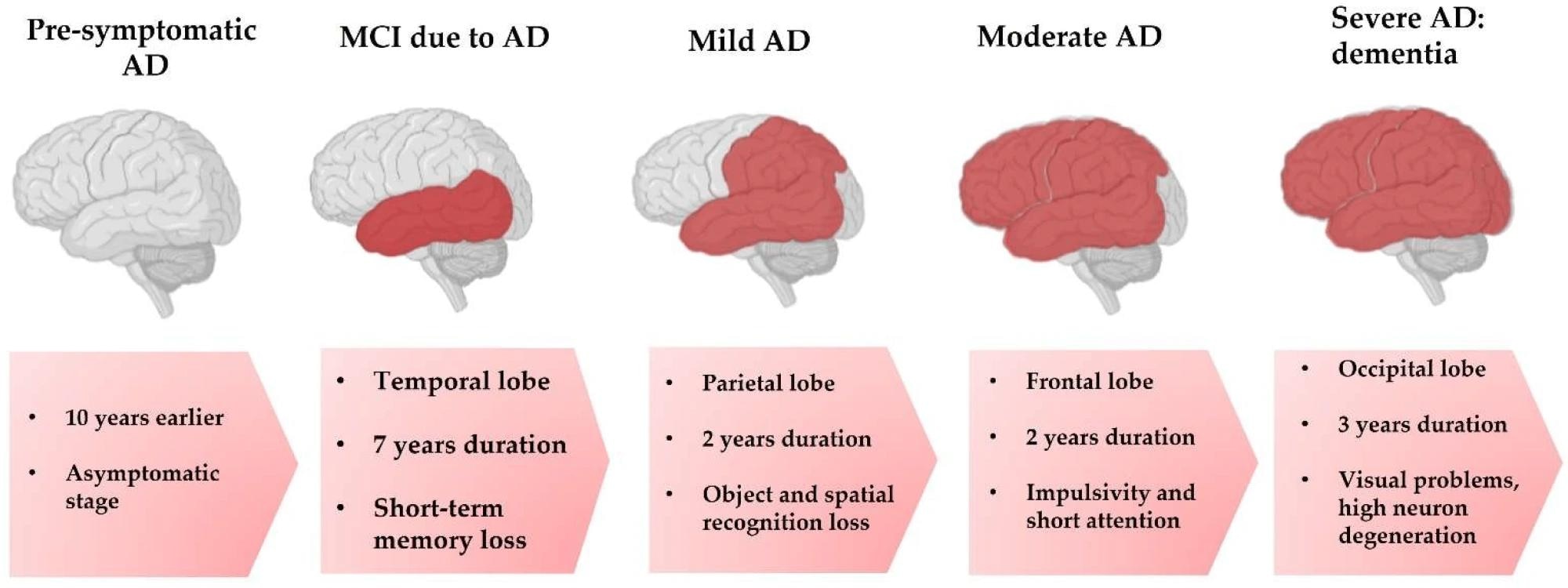By 2050, the United Nations predicts that over 1.5 billion people throughout the world will be over the age of 65. This aging global population will inevitably increase the prevalence of various diseases, including cancer, cardiovascular and metabolic diseases, and dementia.
AD, the most common type of dementia, is associated with the progressive and chronic loss of cognitive function. Some of the most notable risk factors for AD include older age, the presence of the apolipoprotein E4 (APOE4) gene, and family history.
A key feature of AD is the extracellular accumulation of amyloid beta (Aβ) plaques, followed by the intracellular aggregation of the hyperphosphorylated tau protein that eventually forms neurofibrillary tangles. Thus, a significant proportion of AD research has been dedicated to approaches that can facilitate Aβ clearance.
How do lifestyle factors contribute to AD?
A healthy lifestyle has been associated with up to a 60% reduced risk of late-onset AD, with modifiable risk factors for the disease, including obesity in middle age and a sedentary lifestyle. Likewise, certain diets appear to protect cognitive function and support healthy aging, the most notable of which include the Mediterranean diet, Dietary Approaches to Stop Hypertension (DASH), and a combination of the two known as the Mediterranean-DASH Intervention for Neurodegenerative Delay (MIND) diet.
Several dietary components have been shown to reduce the accumulation of Aβ or support the clearance of these plaques, in addition to preserving brain health through other mechanisms. Polyphenolic compounds, for example, appear to reduce the aggregation of Aβ plaques, whereas omega-3 fatty acids may facilitate Aβ clearance, as well as reduce inflammation and neuronal loss.
In addition to diet, PA is also widely supported by the World Health Organization (WHO) as a lifestyle approach that can prevent and delay the onset of dementia. In general, two to three 30-60-minute sessions of PA each week for at least two months, which involve both endurance and muscle strengthening exercises, have successfully improved the cognitive function and neuropsychiatric symptoms of AD patients.
 Progressive stages in the development of AD
Progressive stages in the development of AD
What are miRNAs?
Several mechanisms appear to contribute to the mechanisms by which PA supports brain health, some of which include improved cognitive reserve and Aβ clearance. However, the precise molecular mechanisms underlying this protective effect have not been determined.
MiRNAs are short non-coding RNA molecules that are typically between 20-22 nucleotides in length. Moreover, miRNAs participate in various biological processes, including the regulation of gene expression and certain disease processes.
In the context of AD, miRNAs have been implicated in several related pathways, including autophagy, synapsis, neuroinflammation, and cognitive function. In fact, one study has reported that both blood and brain samples obtained from AD patients exhibit significantly dysregulated expression of certain miRNAs involved in neuroinflammatory processes and Tau hyperphosphorylation.
AD, lifestyle factors, and miRNAs
Previous studies have reported that both diet and PA can modulate miRNA expression; however, more research is needed to elucidate the relationship between these lifestyle factors and miRNA in the pathogenesis of AD.
The researchers of the current study were not able to identify any publications that have analyzed the impact of dietary patterns on miRNA expression in AD. Likewise, few studies have examined the role of exercise on miRNA expression in AD patients and murine models of AD. In fact, most of the studies that have examined this relationship are associated with numerous limitations, including a lack of details regarding the exercise protocol and the incorporation of both men and women in treatment groups, which prevents gender-specific effects of exercise from being considered.
Conclusions
Many studies have confirmed the benefits of diet, exercise, and cognitive training in preventing the development of AD. Although the dysregulated expression of miRNAs has been implicated in AD, few studies have investigated how diet and PA may modulate the expression of miRNAs to prevent AD. Rather, most studies have instead attributed the benefits of these lifestyle factors to their role in mitigating angiogenesis, cell proliferation, and tumor growth metastasis, as well as supporting neuronal regeneration.
Journal reference:
- Pinto-Hernandez, P., Castilla-Silgado, J., Coto-Vilcapoma, A., et al. (2023). Modulation of microRNAs through Lifestyle Changes in Alzheimer’s Disease. Nutrients 15. doi:10.3390/nu15173688